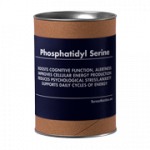People suffering from CFS may benefit from Ashwagandha, a medicinal herb used in Ayurveda.How Ashwagandha Might Help:
Boosts Energy: Ashwagandha may help manage fatigue by boosting energy levels. It boosts the function of the adrenal glands, which are responsible for releasing stress hormones and energy-providing adrenal hormones.
Reduces Stress and Anxiety: As an adaptogen, Ashwagandha helps the body manage stress by balancing cortisol levels, the stress hormone. By reducing stress and anxiety, it may also indirectly contribute to the reduction of fatigue.
Improves Sleep: Ashwagandha aids in supporting healthy sleep due to its calming, rejuvenating qualities. Good sleep is crucial for combating fatigue and managing the symptoms of CFS.

- Boosts energy and reduces fatigue.
- Enhances cognitive function and focus.
- Improves body’s stress response system.
- Encourages better sleep quality.
- Strengthens immune system function.
Ashwagandha: Purchase | Dosage | Benefits | Science
Buy Ashwagandha online:
Important Note: This information serves as a guideline only and should NOT replace specialist advice. Always consult your doctor, pharmacist or a health care professional like a nutritionist before starting any new treatment.
Ashwagandha Dosage for Chronic Fatigue
For chronic fatigue syndrome, the typical dosage of Ashwagandha is about 300-500 milligrams one to two times per day. However, it’s important to consult with a healthcare provider or a qualified herbalist to determine the most appropriate dose for your individual needs.
Please note that while Ashwagandha is generally safe for most people, certain individuals should not take it. This includes pregnant and breastfeeding women, people with autoimmune diseases, and those with specific medical conditions or taking certain medications.
Always consult with your healthcare provider before starting any new supplement regimen.
Ashwagandha Benefits for Chronic Fatigue
- Boosts energy and reduces fatigue
- Enhances brain function and focus
- Stabilizes blood sugar levels
- Reduces stress and anxiety
- Improves sleep and relaxation
- Increases Energy Levels: Ashwagandha has been associated with increased energy and endurance, something that can be beneficial for someone suffering from chronic fatigue syndrome.
- Reduces Stress and Anxiety: One of the major benefits of Ashwagandha is its ability to reduce stress and anxiety, which often exacerbate chronic fatigue symptoms.
- Improves Sleep Quality and Patterns: Ashwagandha also helps in improving sleep quality, and better sleep often means reduced symptoms of chronic fatigue.
- Boosts Immune System: Chronic fatigue syndrome often coexists with a weakened immune system. Ashwagandha is known to enhance the body’s immune response, making you less susceptible to illnesses.
- Regulates Hormonal Balance: Ashwagandha can help regulate hormones, including those related to stress and energy. Stable hormone levels can help manage chronic fatigue syndrome symptoms.
Ashwagandha & CFS/Burnout Science
There are no current scientific papers published on using Ashwagandha to treat CFS, ME, or burnout, however there is much anecdotal evidence online. We’re including several general papers on Ashwagandha here, however if you’re interested it’s worth reading about Ayurvedic medicine, which has a long history of using Ashwagandha for it’s adaptogenic / anti-stress properties.
Pharmacological evaluation of Ashwagandha highlighting its healthcare claims, safety, and toxicity aspects | ⏍
This comprehensive review presents the pharmacological aspects of Ashwagandha (Withania somnifera), covering its diverse therapeutic properties including anti-cancer, anti-inflammatory, anti-diabetic, and neuro-protective effects. The review also delves into the safety and toxicity profile of Ashwagandha, providing a detailed insight into its clinical applications and health benefits.
An overview on ashwagandha: a Rasayana (rejuvenator) of Ayurveda | ⏍
This article offers an in-depth look at Ashwagandha as an essential herb in Ayurvedic medicine. The paper discusses its adaptogenic and anti-stress activities, effects on neurodegenerative diseases, anti-inflammatory properties, and its role as a nervine tonic. The study underscores the importance of Ashwagandha in traditional medicine and highlights the need for large-scale studies to validate its efficacy in various disorders.
Natural sources of Ashwagandha
Ashwagandha is a plant, also known as Withania Somnifera or Indian Ginseng. The plant itself, especially its roots and berries, is the natural source of Ashwagandha and is most often consumed as a supplement or herbal tea.

Our favourite Ashwagandha brand
There are lots of available brand name Ashwagandha capsules and powders, we’re yet to choose our favourite, but if you have any experience you’d like to share on taking Ashwagandha for CFS or ME, please do share on this page.
- Available from Organic Agriculture
- Available as capsules or powder
- Works well in smoothies, or with honey
Organic Ashwagandha options
There are reliable sources of organic Ashwagandha powders and capsules.
Vegan Ashwagandha options
Any Ashwagandha supplements you buy should be vegan by definition, as it’s just a dried plant; but always check the label!





